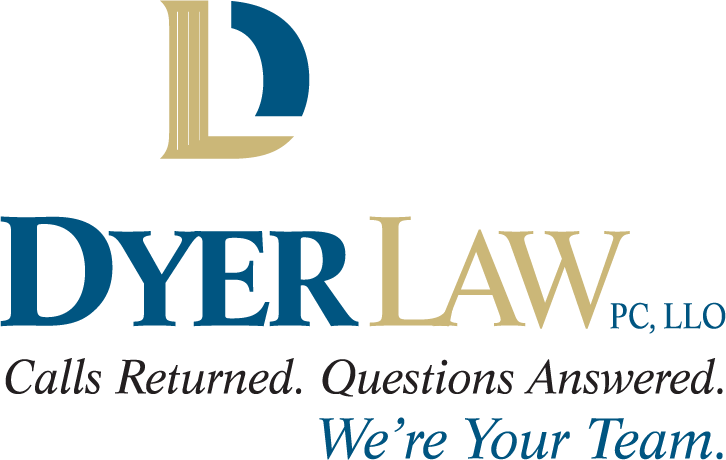Workers’ compensation laws are complicated. No matter how many times you have endured the claims process, you can easily fall victim to common missteps and hinder your ability to obtain the maximum compensation for your injury. Even the most innocuous blunder could negatively impact your case, so it is important that you proceed with each step in the claims process in a thoughtful and informed manner. Although hiring an experienced attorney is the preferred way to ensure your case’s success, we’ve highlighted ten basic pitfalls to avoid when pursuing your workers’ compensation claim.
Failing to Report Your Accident Properly and Timely
Nebraska law requires you to properly notify your employer, preferably in writing, of your workplace injury as soon as is practical to obtain maximum benefits. You should follow your employer’s policy for reporting injuries, as outlined in your employee manual, if possible. If your employer does not have a specific reporting policy, notify your supervisor(s) and human resources department in writing.
Summarizing or Minimizing Your Accident for Medical Providers
When seeking medical treatment for work-related injuries, you should fully inform your doctor of your accident and injuries. Insurance companies often deny workers’ compensation claims when injuries are not accurately reported to medical providers or are not documented in medical records soon enough. You should seek treatment from a physician as soon as possible and provide your physician with the complete details of your accident and everywhere you are experiencing pain.
Attempting to Conceal a Preexisting Condition or Injury
If your preexisting condition was aggravated, accelerated, or exacerbated by a work-related injury, you are still entitled to benefits under the Nebraska Workers’ Compensation Act. You should not attempt to conceal this preexisting condition from your medical providers or attorney. Instead, clearly explain the details of your preexisting condition and how your work-related injury contributed to the worsening of this condition.
Not Seeking Medical Treatment from a Doctor of Your Choice
Nebraska law entitles you to see your usual physician when treating your work-related injury. You can also change doctors, or see a specialist, via a written referral from your chosen physician. You should not, and do not have to, settle for the insurance company’s suggested physician.
*There are exceptions when your employer is part of a managed care plan. Your ability to choose your physician may be impacted by the managed care plan. Please call us to discuss those rules.
Failing to Document All Injury-Related Expenses
When calculating your damages for your workers’ compensation claim, your legal team will compile all your medical/pharmaceutical bills, mileage to and from appointments, and time off of work to determine the compensation you are entitled to. Track all injury-related expenses to streamline this process and ensure all costs are covered.
Not Complying with Medical Treatment
You must comply with your treating doctor’s advice and restrictions to avoid further injury or claim complications. If you do not follow your doctor’s suggestions, your workers’ compensation claim will likely be denied by the insurance company, and your benefits will reduce or cease completely.
Trusting the Insurance Company
Insurance companies profit when they deny claims and avoid paying due benefits. When pursuing a workers’ compensation claim, you should never assume that the insurance company has your best interest in mind. They do not want to compensate you for the benefits you are entitled to—your loss is their financial gain.
Trusting Nurse Case Managers
Nurse case managers are hired by insurance companies to listen in on your doctors’ appointments and find or create faults in your claim. At Dyer Law, we insist that nurse case managers avoid contact with our clients entirely. You should exercise your right to refuse the nurse case manager’s presence in your exam room, regardless of whether you have an attorney or not.
Not Cooperating with Your Vocational Rehabilitation Program
Your participation in vocational rehabilitation services is voluntary, but if you choose to participate, it is important that you follow your return-to-work plan to the best of your ability. Failing to cooperate with return-to-work services after enrolling in vocational rehabilitation benefits may result in the reduction of your injury-related compensation.
Not Hiring a Workers’ Comp Lawyer
Your employer and its insurance company will utilize numerous resources, including investigators, medical professionals, and attorneys, to pay you as little as possible for your workers’ compensation claim. Having an experienced workers’ comp attorney on your side can help you avoid common mistakes, like those listed above, and greatly increase your potential to obtain the maximum compensation for your injury.
To read more about frequent missteps that could negatively impact your workers’ compensation claim, visit our Books page to request your free copy of 7 Common Mistakes that Can Destroy Your Workers’ Compensation Case. We cannot provide legal advice through this blog, but if you would like to learn more about Dyer Law’s approach to workers’ compensation, see our Workers’ Compensation page or call (402) 393-7529 for your free consultation.

